
- E-commerce
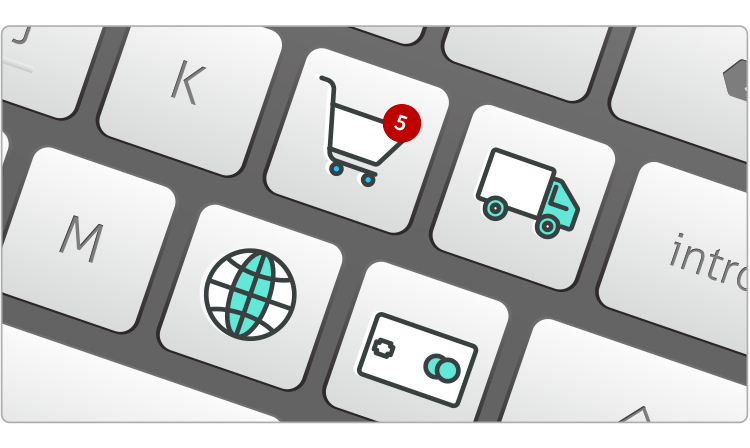
Benefit of CRM in E-commerce
E-commerce has made a huge impact on CRM which helps in offering a great client experience and is more about establishing good relations with the clients. In addition, businesses can make use of advanced technologies and expect to easily know every minute details of the clients. Besides, CRM adds tremendous value to e-Commerce. CRM in e-Commerce can provide the following advantages to your e-Commerce business:
Increased efficiency
One of the benefits of CRM in e-Commerce is increased efficiency. CRM makes use of various automated tools to reduce manual activities. It helps save time and enables your team to focus on other higher value activities. The tools also ensure that all the activities are carried out at the proper time without missing them.
Automated report generation
Having a robust CRM helps fetch the data easily for better understanding and deeper insights about the clients. CRM provides the facility to automatically generate reports, which helps save time.
Client segmentation
CRM can help your e-Commerce business store to segment clients through different aspects, such as their location, demographic, interests, purchase history, etc. Such client segmentation can help your e-Commerce business to deliver a personalized experience to the clients, resulting in better conversions and retention. Such personalized experiences can help close more deals and result in more revenues.
Improved client support
CRM can help your team to provide timely client service and care to resolve clients’ issues quickly. The service reps are notified instantly when the clients connect with your service desk. The service reps may try finding a solution based on the past service history and preferences and take certain measures to evaluate them.
Create loyalty programs
The greatest challenge of any e-Commerce business is to provide the utmost satisfaction to clients. CRM can offer you the most relevant data needed to develop customer retention strategies.
Optimize marketing efforts
CRM allows the creation of targeted marketing that aims at satisfying clients’ needs. It makes it easy to build a personal approach to their communications and aids the development of new products and services that clients want.
E-commerce Features
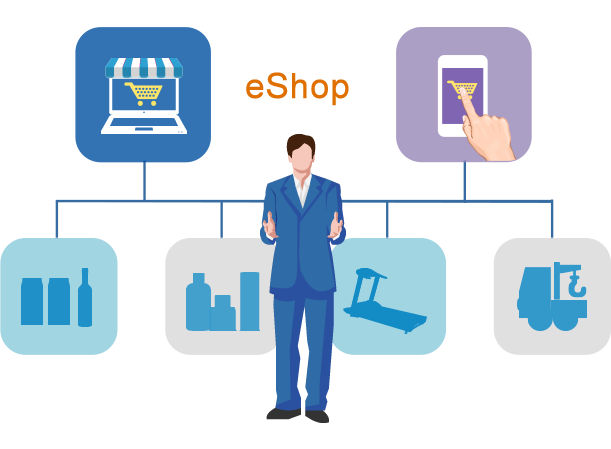
CRM provides client, product, inventory, campaign, transaction, delivery, service and settlement management for both online and offline shops and the real-time connectivity between them. Even for the enterprises that have brick and mortar shops that have never had any computerized automation done before still can use CRM to go automated and go online. Besides the functionality mentioned above, CRM also supports eCatalog, content management, product library, retail management, wholesale management and BI.
eCatalog
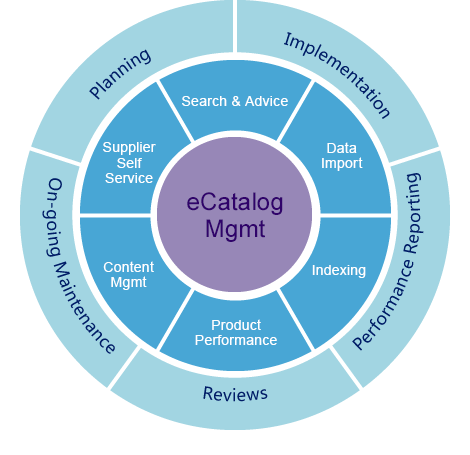
CRM provides the following features in its electronic catalog:
- Search & advice
- Data entry & import
- Indexing
- Product performance analysis
- Content management
- Supplier self-service
It also provides full life-cycle support including planning, implementation, performance reporting, reviews and on-going maintenance. The CRM eCatalog is well integrated with CRM Product Library and can intelligently display all product information according to search criteria and display rules. The eCatalog was carefully designed with an advanced caching mechanism to achieve high performance in a mobile internet environment.
Content Management
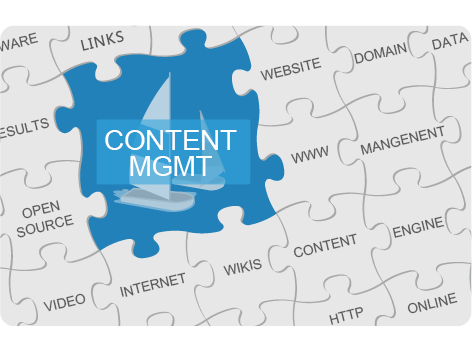
CRM provides Electronic Document Management System (EDMS) for role and access management, version control, check-in and check-out management and Electronic Workflow System (EWS) for submission, edit and rendition, graphical enhancement and approval management of various types of contents for multiple usages and channels. CRM also provides easy-to-use editor and viewer for content creation for eDM, full text search and knowledge-based search for content search and the tool for associating different contents for different target groups (e.g., male, female) for personalization purposes in marketing.
Product Library

CRM provides Electronic Document Management System (EDMS) for role and access management, version control, check-in and check-out management and Electronic Workflow System (EWS) for submission, edit and rendition, graphical enhancement and approval management of various types of contents for multiple usages and channels. CRM also provides easy-to-use editor and viewer for content creation for eDM, full text search and knowledge-based search for content search and the tool for associating different contents for different target groups (e.g., male, female) for personalization purposes in marketing.
The product library is the information repository for both product selling, product acquisition or manufacturing and product warehousing. For product selling, the product information is directly linked to sales orders. For product procurement, it serves as the purchase item master and keeps track of suppliers, historical prices and lead times. For product manufacturing, the product information is directly linked to MPS and MRP II. For product warehousing, the product information helps identify the suitable space and location for storing the products.
Product Management
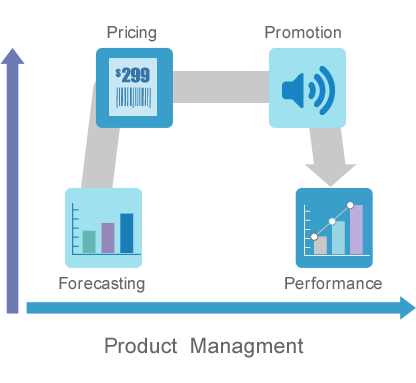
CRM provides the following features to help manage products:
- Product demand forecasting
- Product target margin setting based on different markets or lines of business
- Product pricing based on competitor price or cost
- Different prices for different markets or lines of business
- Product price control to ensure that products that are sold within reasonable price ranges
- Product bundling and unbundling
- Product material & inventory management
- Product promotion & selling
- Product competition management
- Product pick-pack-ship management
- Product return management
- BI & product performance management
CRM Product Management is part of CRM and well integrated with Product Library.
Inventory & Warehouse Management
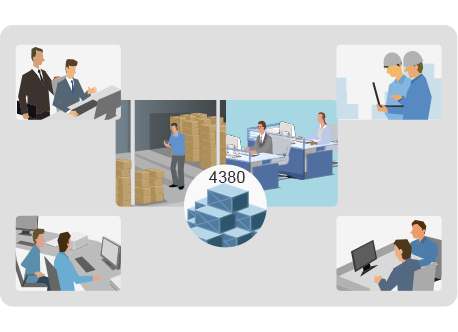
CRM helps manage finished products, work-in -process materials and raw materials which need to be ordered, stored, processed and transferred to and in multiple sites and warehouses.
CRM is a multi-currency system and provides the following features:
- Demand forecasting
- Purchase plan and purchase order
- Logistics cost calculation
- Receipt of goods
- Return of goods to supplier
- Serial number tracking
- Warranty & expiration tracking
- Material request, approval and delivery
- Stock transfer and tracking
- Inventory counting & update
- Inventory financial accounting
CRM also allows users to define different partitions with different size and usages for each warehouse. Users can perform searches in real-time and generate up-to-the-minute warehouse and inventory reports.
eMarketing
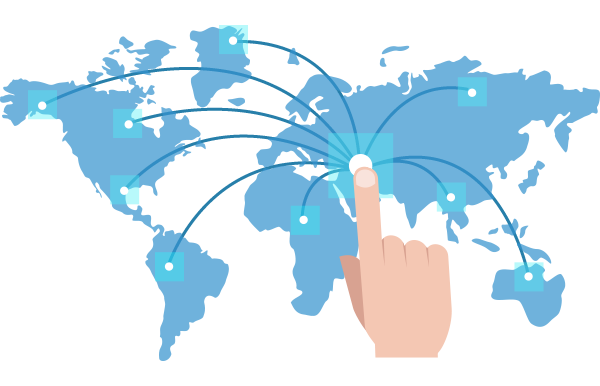
CRM provides modern features for eMarketing campaign management and allows you to maximize reach and effectiveness with minimum cost. CRM eMarketing campaign management allows you to set campaign objectives and formulate campaign strategy and equip you with advanced features to design, schedule, execute and track the performance of the planned campaigns in terms of actual return on investment (ROI).
In implementing email campaigns, unlike outsourcing to an email marketing service, you do not expose your confidential customer list to outside parties; you can stage multiple emails in a multi-touch sequence at practically no incremental cost. With CRM embedded BI technology driving the email campaign engine, you can selectively seek out a specific group of clients or prospects having common requirements and interest, and to deliver a well prepared personalized message that will appeal strongly to the target audiences.
Visitors to Clients
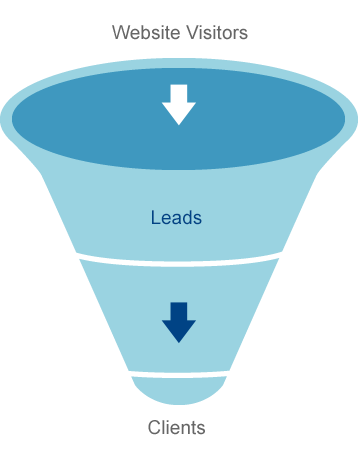
CRM allows you to convert websites and store visitors to leads and leads to clients. It allows you to record all enquiries, interactions and physical visits and trials and track all follow-up actions and results online and offline. As sales team members, you can count on CRM to help you look-up client and contact profile and performance information, manage and track leads and opportunities, manage client appointments, activities and tasks , prepare quotations, prepare client interaction reports, sales performance reports and forecasts. As sales managers and executives, your business objectives are to guide the delivery of the planned revenue, profit and cash-flow on target and on-time; and to grow the sales teams in skills, expertise and performance. CRM provides a holistic view of your business as a whole with links that you can drill down to any level of detail for sales opportunity reports, and sales performance reports by territory and by sales persons.
Client Repository
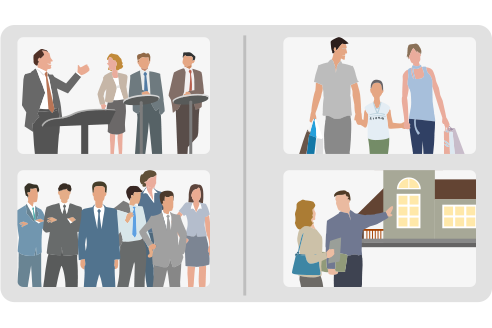
When you uncover a new opportunity, you want to know whether they are qualified in terms of legal, financial/credit standing, and if they have purchased similar products or services before. If you have won similar deals from this account, why have you won and can you repeat that success; if you had lost, what do you have to do to win this time?
The information shall cover the client's organization structure and the roles of their key individuals; the company's buying behavior and transaction records. With access to such information, you will understand the benefits, liabilities, obligations and risks involved and be in a better position to devise strategies and a game plan to pursue it.
Membership Management
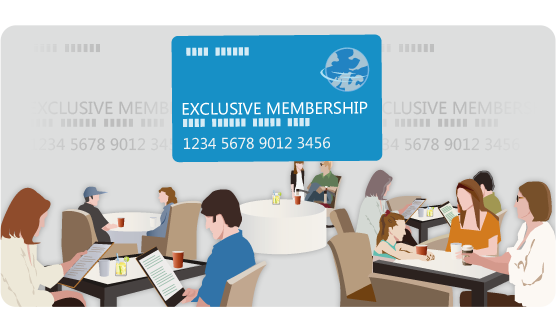
Using CRM Membership Management, you can design your own membership and loyalty programs to retain customers and promote additional businesses. CRM Membership Management can help you get closer to your high value customers and more effectively influence their choices and behaviors.
CRM Membership Management allows you to design different types of memberships and privileges and it can automatically perform different levels of customer care, record membership points and notify members on special events, gifts and discounts. CRM Membership Management allows you to set promotion rules for different types of memberships in different geographical locations and manage membership-related gifts, coupons and discounts. CRM Membership Management also provides web-based member self-service to allow members to view their transaction and accumulated point summary and use their points to exchange the rewards that they want.
Order Management
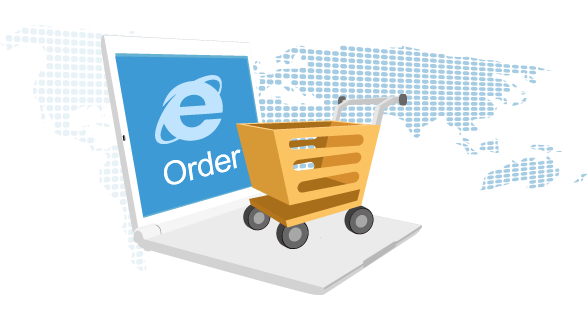
CRM allows you to generate eQuotations to send to the client and the client can confirm the eQuotation by signing electronically. The eQuotation will be converted to an eOrder and the fulfillment process will be started. CRM provides online eOrder management and offline pick-pack-and-ship management. Any change on the online eOrder will automatically change the offline operations guided by CRM. CRM can also automatically generate invoices according to the payment terms specified in the eOrder and track payments.
CRM also supports client satisfaction management and return management.
Service Management
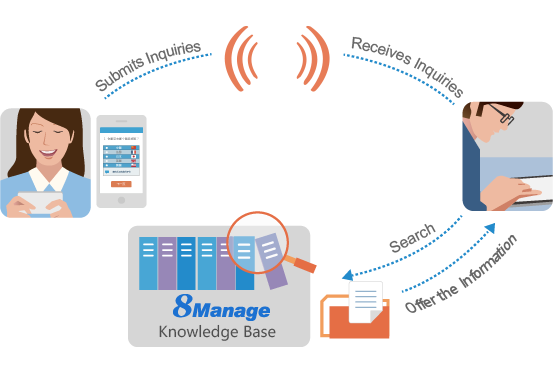
In CRM’s Standard Service Support, your customer is set-up as an CRM external log-on user. The customer may view a list of service requests that he or she submitted previously. By clicking on links, he or she can view responses for individual requests.
A new "service ticket" will be tracked automatically. In the event a response is not received by the customer within a preset period, an escalation email will be sent to the service reps manager. Additionally, if the customer is not satisfied with the service response, he or she has the option from inside the service ticket page to manually initiate an escalation email to the service representative’s manager with a cc to the service representative.
Chain Store Management
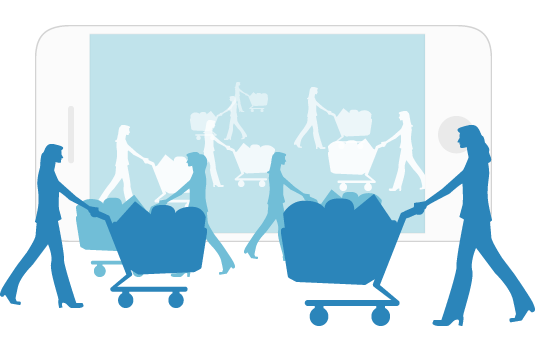
CRM provides advanced features of managing hundreds and thousands of chain stores. For each store, CRM provides client management, membership management, order management, inventory management, procurement and contract management and HCM management and information can be aggregated up according to brands and regions in real-time.
Business Intelligence
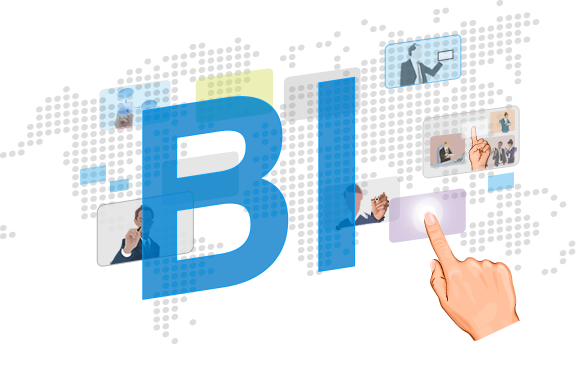
Using the standard CRM eSurvey capability, a user can readily set up a website containing an easy-to-use, multi-check-box web-form that feeds collected data to an Embedded BI behavioral database. Using CRM email campaign capability, the user sends email to a target survey audience, inviting them to participate with the survey online. This way a client behavioral database will be built quickly without any software development.
Once the behavioral database is built, it can be used to generate client analysis reports, or when coupled with CRM email campaign engine, the behavioral database may be used for personalized email campaign execution.








